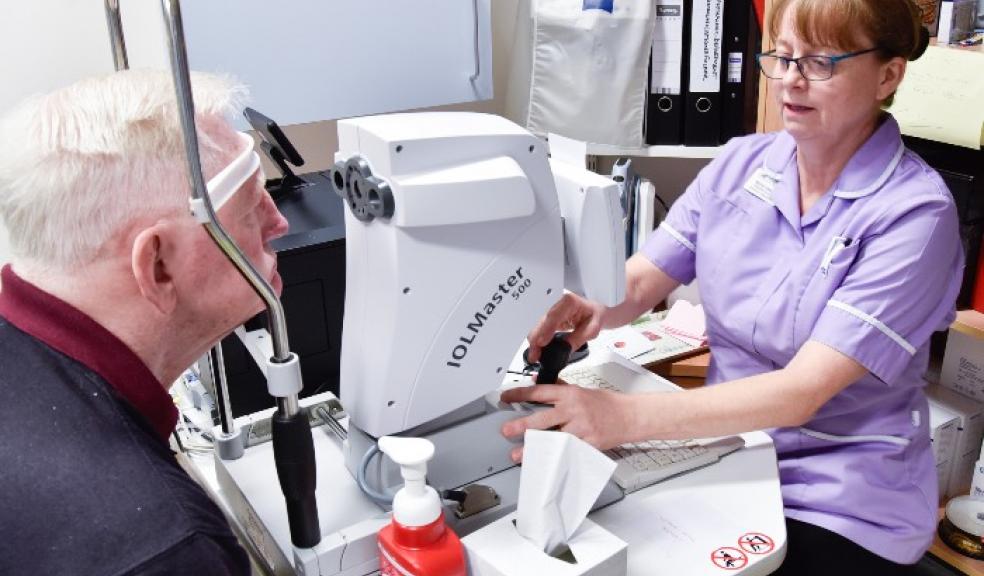
Devon cataract patients to get follow-up appointments nearer to home
Cataract patients in Devon are to get post-operation follow-up appointments nearer to home, thanks to a new arrangement between Peninsula NHS Treatment Centre and Primary Eyecare Devon.
At present, patients who have had cataract surgery at Peninsula NHS Treatment Centre must return to the hospital for their post-operation follow-ups. In the new arrangement with Primary Eyecare Devon, the majority of cases patients will be able to have their follow-up appointments with accredited optometrists based at an optical practice local to them.
Patients will be able to book their own appointments, ensuring that they will be seen at a time which is convenient to them.
So far more than 30 optical practices have signed up for the scheme, and more will join as time goes by. Around 2000 Peninsula NHS Treatment Centre patients a year are expected to benefit from the new arrangement.
Primary Eyecare Devon is a not-for-profit organisation which administers NHS-funded eye care services across Devon. It works with a range of optical practices, from small independent concerns to the largest national chains. It is a provider arm of the Devon Local Optical Committee.
Mark White, Hospital Director at Peninsula NHS Treatment Centre, commented: “We are always investigating ways in which we can improve upon our already excellent service to patients. As a consequence, we are delighted to have entered into an arrangement with Primary Eyecare Devon which will make cataract follow-up appointments more convenient for our patients, because they will be able to be seen by accredited optometrists at an optical practice nearer their homes.”
Peninsula NHS Treatment Centre was the first hospital of its kind to achieve an overall ‘Outstanding’ rating from the Care Quality Commission. More information is available by visiting www.peninsulatreatmentcentre.nhs.uk
6 signs you may need cataract surgery
It is estimated that around 2.5 million people aged 65 and over in England and Wales have some form of vision impairment caused by cataracts. While cataracts can interfere with everyday life if left untreated, cataract surgery is a successful procedure with good results for almost all patients.
Here are the 6 signs that mean you might need cataract surgery:
- Cloudy vision
- Changes in colour vision
- Glare while driving at night
- Glare during the day
- Glasses prescription changes (increased frequency)
- Double vision or ghosting of images (especially if only noticeable in one eye)
What causes cataracts?
- Natural ageing changes (most cataracts are formed this way)
- Secondary from other illnesses such as diabetes or medications
- Previous eye surgery
- Babies can be born with congenital cataracts
What does cataract surgery involve?
Cataract surgery is the removal of the cataract and insertion of an artificial lens called an IntraOcular Lens Implant (IOL) into the eye. The operation can be performed at any stage of cataract development. There is no need to wait until your cataract is “ripe” before removing it. Most people choose to have their cataracts removed when the change in their vision starts to cause them difficulties in everyday life. Cataract surgery usually takes about 10 – 15 minutes and most people go home from hospital about two hours later. It is done under local anaesthetic, which means you will be awake during the operation but you will not feel any pain. The local anaesthetic may involve eye drops and/or a very small pellet which will slowly dissolve in the eye. After the operation, you will need to put drops into your eyes for a few weeks.













